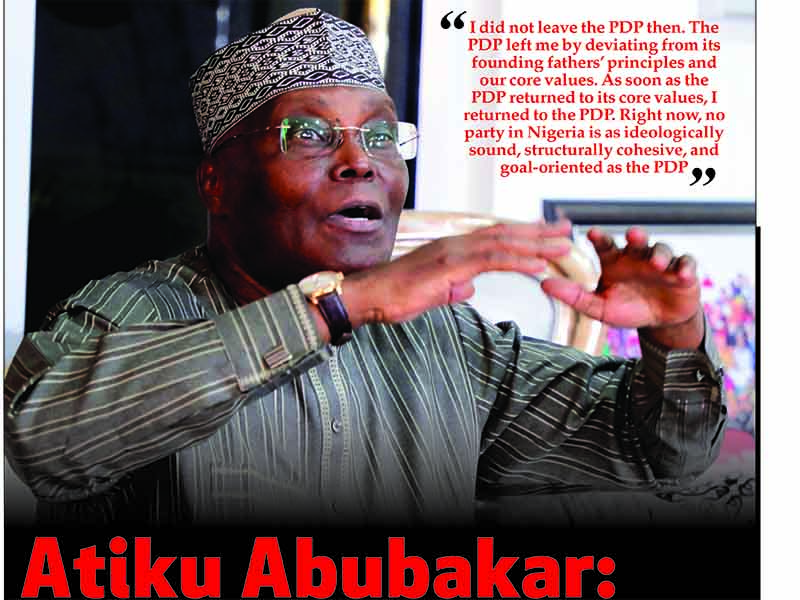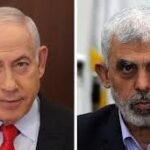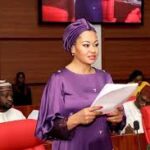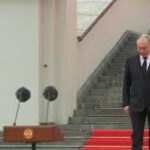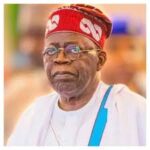[ad_1]
Confident, optimistic and determined, former Vice-President Atiku Abubakar, didn’t mince words, when he said, with a whiff of pride, ‘I’m the best of them all’. That wasn’t just a statement for the media to feast on; it was also a subliminal message to other presidential hopefuls that they have the master of the game to deal with.
Perhaps, he is not unaware this might be his last attempt at the presidency and also very confident about giving it his best shot possible and realising this long-nursed dream. Curiously, nothing has really changed about this Adamawa State-born politician and businessman. From his mental alertness to his youthfulness, understanding of the issues and capacity to sell them, Atiku is prepared to go for broke yet again in the 2023 presidential run.
With eloquence and depth, shaped by experience, Atiku sees the Nigerian Project as very doable. Even more, he thinks the challenges which seem mountainous are no big deal with the right vision and leadership, which he seeks to offer. Thus, speaking with THISDAY in this first in a series of pre-primary presidential interviews, he made great effort in selling his candidacy to Nigerians and his party, the PDP. Excerpts:
Since going into politics in 1993, you have contested for the office of the president five times, albeit unsuccessfully. You attempted it in 1993, 2007, 2011, 2015 and 2019. Now, you’re taking your sixth shot in 2023; is it a lifelong ambition to want to be president of Nigeria?
I would not say the ambition has been to be president. Rather, my ambition has been to help Nigeria fulfil its destiny, as I perceive it, which is to be the beacon of hope for the Black Race, by being a nation well run, united, and providing opportunities for its citizens to prosper and pursue their individual happiness.
After a long and successful career in the public sector, I was able to make a positive difference for Nigeria and that was evident to people, especially, my mentor, the late Major General Shehu Musa Yar’adua. It was he, who recognised my leadership abilities, especially, after he witnessed how I was able to continue making a difference in the private sector.
So, in direct response to your question, my ambition has always been to help Nigeria achieve its potential by providing servant leadership, at whatever level, in any sector I find myself, that will enable us realise the visions of our founding fathers. And you may agree with me that leadership is essentially the ability to transform vision into reality. That will be the best way to show my gratitude to Nigeria for all that the country has done for me.
Why do you think you have been unsuccessful so far?
I would not say I have been unsuccessful. That would be a misreading of the facts. In the last election, I was clearly the favourite of Nigerians to win. You and other Nigerians saw the way and manner that election went. However, I am a forward thinker, and I will not dwell on the injustices I experienced in the past.
In running for the Presidency, I have been instrumental in influencing the judiciary to make case laws that have deepened democracy. This much has been espoused by the Supreme Court itself. Success is not just about the end result. You also have to take into consideration the process.
That being said, I am a Muslim, and a firm believer in the principle that power belongs to God and He gives it to whomever He wills. And I will put in my best effort, but ultimately, I am a pencil in the hand of God.
There’s a general assumption, which was particularly prevalent in the 2015 presidential run, that you were the most qualified at the time, given your experience, understanding of issues and solutions proffered. But after many failed attempts, don’t you think you should yield the space to others?
Well, this makes as much sense as saying that the answer to two plus two is four. But because certain persons have consistently used all sorts of means to pass off three as the answer to that equation, then, I should agree with them?
You too have said it. To use your own words, “given your experience, understanding of issues and solutions proffered”, I am the best. So why should the best give way to the rest? Is that not why we are where we are today as a country?
So, let’s hit it straight. After five failed attempts, why do you still want to be president of Nigeria in 2023?
Please allow me the liberty of rephrasing your question. I would rather say, after several attempts. They were not failed attempts, as I have already explained above.
In the year 2022, Nigeria is the world headquarters for extreme poverty, and the third most insecure nation in the world. Our economy is not growing, while our population is expanding.
If you now look at my record in government, where under the leadership of President Obasanjo, I was the Chairman of the National Council on Privatisation, and a coordinator of our economic management team, you can clearly see my achievements. Those achievements need to be replicated, if we are to turn the tide. In fact, it is almost as if providence thrust me out this time to do again what had God enabled me to do before.
We provided jobs. Nigerians are now unemployed in record numbers. We paid off Nigeria’s foreign debt. Nigeria is now more indebted than at any time in our history. Through our policies and inclusiveness, we had relative peace. Now, Nigeria is in crisis due to insecurity.
It would look to me that my curriculum vitae, or my resume, appears tailor-made to address the challenges we now face as a nation.
Unfortunately, you have always had to deal with allegations of corruption, a major dent that has refused to go away. This perception is a major handicap no doubt. What will you do differently to change this view of you in the eyes of many people?
Thank God you said allegations. Anybody can allege. You know the history of this country and what specifically I went through. All that is now in the past. What I will say however, is that I am the most investigated politician in Nigeria, yet, nothing has been established against me. I have received a clean bill of health, with regards to the allegations raised against me.
That alone should tell you something. It speaks volumes. In the attempt to stop me, knowing that my plans are sound, my ideology is solid and stable, and my connection to Nigerians is enduring, the only thing that my political opponents could use against me are false allegations. My only answer to that is that I have judicially been exonerated and vindicated of all of them.
Interestingly, the core of the issues remains the same in almost every election cycle: security, economy and corruption. Why do these issues seem intractable and how do you, with a perception issue, intend to address the endemic and systemic corruption?
Well the issues have remained because we have not sustained good leadership. We have episodic good leadership. This has been expressed by this one step forward, two steps backwards reality that we now face. Most corruption in Nigeria takes place, because government is in the business of business, rather than being in the business of governance. That is why I had a vision to privatise those parts of our government that were involved in business.
For instance, the Nigerian Telecommunications Limited was a corrupt monopoly. Hence, I spearheaded the privatisation of the telecommunications sector, and that area of our economy has become, according to Transparency International, one of the least corrupt sectors.
The successors to NITEL, viz. Glo, MTN, Airtel and co. are run in a businesslike manner. Teledensity has improved by over 1000%. Jobs have been created in their millions. Trillions contributed to the economy annually.
That is how you fight corruption; by starving it of its oxygen. If we do the same to the oil sector, and other sectors, and just focus on providing good governance, corruption in Nigeria will begin to die a natural death.
But the privatisation of national assets hasn’t been an all-round success. It is today considered one of Nigeria’s greatest problems, because of the poor manner aspects of it were handled.
It looks to me that you are referring to privatisation exercises done by other administrations. The privatisation that I was directly responsible for as chairman of the National Council on Privatisation, which took place in the telecommunications and other critical sectors, was a brilliant success, applauded by Nigerians themselves, recommended to other nations by the World Bank, and still thriving till today, and looks set to continue thriving long after I am gone.
We took a telecommunications sector with a corrupt monopoly, and transformed it into an industry with a prosperous philosophy.
We took a cement industry that was government funded and run, and privatised it to Dangote and others, and helped them create thousands of jobs in the process, while creating a new set of innovative business persons, who are now expanding throughout Africa.
We took the downstream sector, and in particular the marketing and distribution of petroleum products, privatised it, and ended fuel scarcity during our time, while simultaneously creating subsisting business moguls who created much-needed jobs and delivered dividends to investors and tax to the government.
What happened in other instances of privatisation that I did not supervise, I will not comment on. When it was my turn, I delivered. And if elected by Nigerians, I will deliver again.
You see, speculation about your perennial presidential run won’t go away. Is it true you are standing on the words of some marabouts (as it is being alleged), who had predicted you’d be president if you remained tenacious, even if the odds were stacked against you?
Even me, I am surprised when people bandy about these types of beer parlour myths. I am a devout Muslim. My principles do not allow for anything other than total submission to the will of God.
Let’s put it this way: were you ever told by a marabout that you would be president someday?
That is a myth put together by my political opponents to achieve whatever ends they wanted to achieve. That is just like saying Reagan and Churchill kept trying multiple times because they were powered by soothsayers. It may interest you to know that I became governor after four attempts. Tenacity is a virtue. It is not a vice. It should be celebrated.
Perhaps, standing between you and the presidency is the ticket, this time, at least, some have reasoned. However, there is a groundswell of opposition against your entry into the race for different reasons. Some believe your face has become monotonous in presidential campaigns, that Nigerians would prefer a breath of fresh air. And, of course, there are those who think the North should yield the ticket to a southerner after eight years of a northerner in the saddle. What is your take on that?
That is a fallacy. There is no groundswell, to use your word. Yes, there are people who have large megaphones, but they do not constitute a groundswell. Some of these people have emotional and historic reasons for making their appeals, and one must be sensitive to them. That is why I have gone round and keep going round this country to consult. I believe in the politics of addition. I am not a subtracting politician.
As to the other part of your question, permit me to disagree. I think after over seven years of incompetence, Nigerians just want competence. Where it comes from, they do not mind. The challenges that we face today have so focused us on the need to elect leaders based on their competence, instead of their region or religion. Nigeria needs a unifier, not a pacifier. We will be pacified by unity. We will not be united by pacification.
The agitation in the Southeast to be allowed a shot at the presidency is not without merit, or is it?
Of course it is in order. Have you forgotten how passionate I have been in advocating for the Southeast? Look at my record. What the Southeast has to understand is that people’s records matter more than people’s rhetoric. I ask my beloved people of the Southeast to focus on what cannot lie; my record. My attitude towards them. My history with them.
Some of your co-aspirants from the north are currently considering a consensus approach to selecting a candidate as part of strategies to defeating the ruling party and mitigating the outcome of the primaries. But you have been somewhat cold to this idea. Is it because you believe it may not go your way?
Not at all. I just believe that no man should be a judge in his own case. Let’s go down memory lane. In 2010-2011, the North chose to go that route. However, it was not the aspirants, who elected on their own to come up with a consensus candidate. It was the region. Specifically, the Northern Political Leaders’ Forum led by the late Malam Adamu Ciroma.
If the North as a region wants that option, then, it should be driven by our natural leaders and elders. It should not be promoted by partisans. Once it becomes like that, then, it may become a poisoned chalice.
Generally, your party appears torn between the agitation for zoning and merit, to accommodate everyone. Where do you stand on zoning and why are you pushing for it to be jettisoned this time around? Is it because you think it will not serve the interest of the party or you see 2023 as your last chance to bid for the presidency?
I do not want to say anything on this beyond what I have already unambiguously said. However, I will add this: the Peoples Democratic Party, of which I am a founding member, should focus on winning, not on zoning!
Are you desperate for this ticket, because some people actually think you are?
No. I am tenacious. Tenacity is very different and poles apart from desperation. This is one of the reasons I invested heavily in education. Youths must be taught the virtue of tenacity. Never give up, is a virtue we must pass on to the next generation. I believe that quitters never win and winners never quit.
The argument that, of PDP’s 16 years’ reign, over 13 years of that went to the South has refused to fly with your southern members. Don’t you think some of your members would rather throw away what looks like an opportunity to return to power than slouch to that logic?
As I said just minutes ago, the Peoples Democratic Party must focus on winning, not on zoning. Zoning will not matter if we do not win. First, we win, then, when we are in power, we will have the political wherewithal to zone from a position of power, and not from a position of weakness.
One of the presidential aspirants has made it an issue that those who left the PDP to join the then newly-formed APC, including you, were responsible for the party’s defeat in 2015 and should not be in line for the ticket. What’s your reaction to that? Would you share responsibility for PDP’s defeat in 2015?
You know, I have responded to this issue before. I did not leave the PDP then. The PDP left me by deviating from its founding fathers’ principles and our core values. As soon as the PDP returned to its core values, I returned to the PDP. Right now, no party in Nigeria is as ideologically sound, structurally cohesive, and goal-oriented as the PDP.
However, let me say that our opportunity to win as a party is in today and tomorrow. It is not in yesterday. As a party, we need to be future-focused. 2015 has gone. We should now focus on 2023.
Do you regret joining the APC at the time you left the PDP?
My philosophy is to live life without regrets. I believe that there are only two consequences to every decision. You win or you learn. If you took a decision that ended up teaching you something, then you have made progress.
Talking about your candidacy, you’d be 77 next year, meaning by the time you serve out your first term if elected president, you’d be 81. Do you think a country that is challenged on all fronts like Nigeria needs an 81-year-old in office, given the health concerns often associated with old age?
The best predictor of the future is the past. If you take a country like the United States, they reached their zenith as a super power under Reagan, who was their oldest President at the end of his tenure. He became President in his 70th year, and governed for eight years.
In that time, he defeated the USSR and won the Cold War. That singular action enabled America to turn its attention towards pressing domestic issues, and allowed them to spend what they would have spent on the arms race, on their people. That redirection and redistribution of resources laid the groundwork for the prosperity that came in the 90s.
Youthfulness is good. However, in a country like Nigeria, with the types of multifaceted challenges we are facing, it looks to me, and many other patriots, that what we need is a man or woman with the experience to pilot a plane in rough weather. We are not in a position where we can afford to have a President, who learns on the job.
Although it’s easier to dismiss this by saying the work of the president is not physically demanding, the truth is, it is, and requires alertness of the mind and being in tune with changing realities of daily existence. Isn’t it?
You have been interviewing me for close to an hour now. Look at my response. Are they or are they not clear, lucid, and addressing the issues? My mind is alert. The only difference between now and 1993 is that I have acquired an additional 30 years’ of good experience.
Let’s take the three core issues militating against development and growth in Nigeria, one after the other. Security of life and property is the number one responsibility of any government. Nigeria is today one of the least secure nations in the world. Life has become brutish, nasty and short. Nowhere is safe anymore; the roads, airports, and rail, have become targets for terrorists. What exactly is the way out of this? Why do you think the government has so far failed to secure the country? How would you tackle banditry and terrorism wreaking havoc all over the country?
What Nigeria is facing is a Malthusian challenge. Our population is growing faster than our economy. In layman’s terms, mouths are increasing, while food is reducing. The error this administration has made is that they have been fighting the symptoms, not the disease. We do not have terror, crime and general insecurity, because Nigerians are inherently bad. No. We have these vices because Nigerians do not have enough jobs, food, and opportunities.
As leaders, we have not provided our people with positive opportunities to express themselves, and that is why many are expressing themselves negatively. The solution is to develop the economy. Introduce free trade policies. Lift regulatory bars to investments. Reduce taxation for businesses and fund infrastructure.
While this is going on, we must work with our natural institutions, which are the traditional rulers, clerics and community leaders, to help us achieve our universal education goals. No child should be seen on the streets of Nigeria during school hours.
We will provide universal free and basic education from age four to eighteen. If a child is seen roaming the streets during school period when you start universal education, the parents or guardians must be punished. Uneducated and undereducated youths without skills and opportunities easily take to crime. You starve terror and crime of their oxygen.
Then, we must address those who feel that they have suffered historical injustices. Mohammed Yusuf, the founder of Boko Haram, was not given to violence or terror. He was a charismatic cleric. It was when he was extrajudicially murdered that the group metamorphosed into a terror group and radicals, like Shekau, used that historical injustice to brainwash their followers that Nigeria was against them.
Terror has never been defeated militarily. It can only be defeated by negotiation. Look at Northern Ireland. The United Kingdom, with an army and an arsenal, as well as the intelligence and ability to infiltrate, which are much better than our current abilities, were not able to defeat the Irish Republican Army.
They had to negotiate the Belfast Agreement, also known as the Good Friday Agreement in 1998. What the military could not achieve, negotiators achieved it. The same is true for other instances of global terror. We must ensure that the family of Mohammed Yusuf gets justice. They should also receive compensation. The mosque that was destroyed should be rebuilt.
When all of these have been done, then, the rank and file members will no longer blindly follow any person saying that Nigeria is an evil place. Internally, they will be weakened. Their cohesiveness will be affected. Then those who refuse to lay down their arms will be militarily dealt with.
On the issue of banditry, we must secure our borders. A country without borders is not a country. And that is my strong point. I was in the Nigerian Customs Service. I worked as an exchange worker with the United States Customs and Border Protection.
Believe it or not, in the 80s, I participated in armed sting operations at the US Southern border in Texas. I have some ideas on how to secure our borders so we do not have an influx of foreign bandits, and we can pacify those belligerents who are of Nigerian origin.
The activities of Fulani herdsmen border more on terrorism, what new measures would you bring to deal with them, considering that you are also Fulani? Would you rein them in unlike the free pass this government has given them, since the incumbent too is Fulani?
I will deal with terrorists as outlined above. Terrorism is not a tribe or ethnic nationality. Terrorism is a crime, and Atiku Abubakar, has zero tolerance for crime.
What would you do to stem secessionist agitations, particularly, IPOB in the Southeast?
I believe that if I am elected President of Nigeria in 2023, all secessionist tendencies will die a natural death. Injustice is at the core of secessionist demands. Once you begin to do justice, secessionists will have a rethink.
If you allocate political offices justly, and budgetary allocations are even, with nobody having more than the other, if the military and paramilitary are ethically and ethnically balanced, secessionists will lose their main campaign message.
Many analysts believe the economy needs fundamental restructuring. Do you believe it does? What really is the problem with the economy? And how did Nigeria fritter away all the gains of the past?
These gains from the past that you are referring to, who gained them? Were they not gained when I was heading the privatisation and the economic management team, under the leadership of President Obasanjo? Just last month, the World Bank released a document entitled Nigeria Poverty Assessment, 2022. I urge you to read it. The gains you are referring to were made under our administration.
We paid off our foreign debt. We set up the Excess Crude Account in 2004. By the time we were leaving office on May 29, 2007, Nigeria’s total reserves were $43.13 billion, which consisted of external reserves of $31.5 billion, $9.43 billion in the Excess Crude Account, and $2.18 billion in other savings accounts.
We delivered GDP growth of 6.7%. We reduced unemployment to single-digit levels. I was part and parcel of making those gains, and we can make them again if elected in 2023. The right leadership will result in the right conditions for all Nigerians.
We must devolve power from the federal government to other tiers of government. The central government has been too big since the Unification Decree number 34 of 1966.
Nigeria must improve and that can only come by devolving powers, not concentrating them. That is why I commend the Rivers State Government for its legal challenges that have disrupted the tax industry. We need people and institutions like that.
Electricity generation and distribution remain a major problem, what will you do to change the narrative in this all-important sector of the economy?
Historically, no nation has solved its electric power challenges solely at governmental level. Government, that is the public sector, the civil service, and the executive political leadership is not best equipped to drive the changes we need to provide adequate power for Nigerians.
The solution is to complete the privatisation of the sector, which was begun by the Jonathan administration. Government must swallow the bitter pill of paying off power sector workers, who have resisted privatisation, because they were owed salaries, gratuities and pensions.
Even the best governmental structures in Europe and America, have not provided power for their people, without handing that industry to the private sector, and focusing on the regulatory side of things. I see no need to reinvent the wheel.
This government deferred the removal of fuel subsidy, which many agree is a huge drain on public resources, to the next government. Assuming you emerge as the candidate of your party and eventually win the presidency, would you take the tough decision to remove the fuel subsidy, which this government has proved incapable of removing?
When by the grace of Almighty God, I am elected President in 2023, I will not take that decision on my own. I will climb down from the mountain to meet with labour leaders, civil society groups, and other national stakeholders, and together, we must do what is right for Nigerians.
So what is right for Nigeria, because that answer is equivocal, and you just sounded like you are also afraid of taking the decision?
You mean that by taking a collective decision with all stakeholders and the representatives of end users, I am showing fear? Some people will call what I just described, democracy in action. But to each his own.
Back to graft issues. It is now almost a cliché to hear politicians seeking office say they would fight corruption. How would you tackle this scourge, and this is important, because you are largely seen as corrupt?
I think I have already touched on this. Most governmental corruption goes on at income generating parastatals. That is another reason why government should focus on the regulatory side of business and leave the money-making aspect to the private sector.
You do not hear of corruption in the telecommunications sector, because we privatised it. When government is focused on regulatory practices, it becomes easier for independent anti-corruption agencies, like the EFCC and the ICPC, which incidentally our administration established, to fight corruption within the system.
Currently, they are overwhelmed, because the current system allows too much leeway for public officials to have access to the money-making side of business.
What are your thoughts on INEC? Do you think it could do a good job in 2023, if its recent outings were anything to go by?
We all saw what this administration tried to do. The President attempted to make one of his spokespersons an INEC director. He failed multiple times, because the citizenry united and were resolute in their rejection of such stunts.
If Nigerians continue to be as watchful and forceful as they were during that ugly episode, it will be more difficult for those planning to circumvent the system to do so.
Generally, what are your thoughts on how the 2023 elections should turn out, in terms of preparations and voter’s attitude?
Nigerians should be vigilant. To use a local parlance, our people should ‘shine their eyes well, well’! Nigerians must remember that if they do not vote in large numbers, they make it more possible for election riggers to succeed. If we do not want the inconclusive election syndrome to persist, we must all do our civic duty by voting.
Have you any fears at all about the exercise, especially the organisers, who are assigned to ensure a hitch-free run – from the security agencies to the ad hoc staff?
I have concerns, not fears. I have already mentioned some of them. Others will be articulated directly to those agencies concerned.
Put aside your candidacy and let’s talk about the chances of your party, the PDP, running against a ruling party. How bright are they and why do you think so?
A ‘ruling party’? Well, I think if you go by the definition of a ruling party, then, the All Progressives Congress is not a ruling party. They are a party in office, but they are neither ruling nor governing. Nigeria is on auto pilot with this bunch.
Comparing the Peoples Democratic Party with this APC government is like comparing a PhD with a primary school drop-out.
Lastly, election or not; change of government or not; Atiku as president or not; what is Nigeria’s future like?
Nigeria will survive. And when we eventually get to work to enthrone our vision of One People with One Future and One Country, Nigeria will be the better for it. I am convinced that as one, we can birth a New Nigeria.
[ad_2]
Source link
